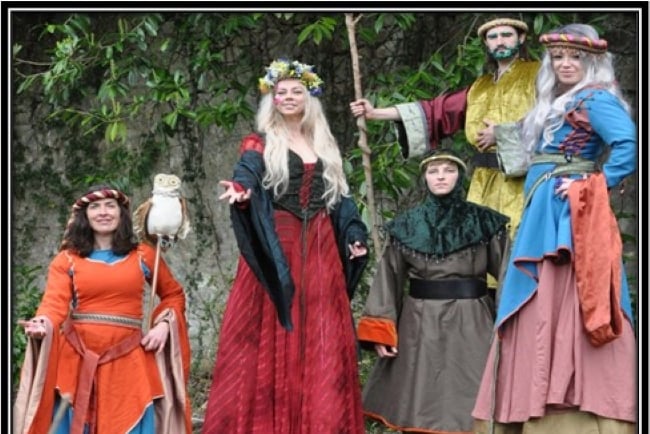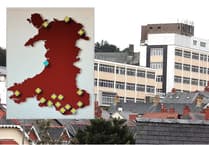ABERYSTWYTH Town Council will be hosted a parade through the town to celebrate two medieval princesses and all things Welsh in a bid to boost trade.
The Princess Gwenllian Parade and Carnival will be held in the town centre on Saturday, 17 June from 12pm.
The parade will start at the top of town near the Market Hall and finish at Aberystwyth Castle, where a carnival will be held, which will include Welsh-themed fancy dress competitions (anything Welsh-related), circus skills workshop, a traditional Welsh court re-enactment, traditional Welsh music and a food stand selling food.
The town council is encouraging people to come along and to dress up in Welsh-themed colourful dress to the free event.
The council says local businesses have faced 'challenge after challenge in recent years' and this is the town council's attempt to support them.
A council spokesperson said: "This is the second event in a program of Welsh historical and cultural events to strengthen Aberystwyth's sense of place and identity while at the same time creating memorable images that visitors will want to come and see."
Aberystwyth Town Council held a Santes Dwynwen Parade through the town in January to celebrate the Welsh Patron Saint of lovers.
Santes Dwynwen Parade organised by Aberystwyth Town Council, was held in January this year
Who were the two Welsh princesses?
Princess Gwenllian, or Gwenllian of Wales (1282 – 1337) was the only child of Llywelyn ap Gruffudd, the last native Prince of Wales.
She was captured as a baby after her father was killed near the Irfon Bridge, (her mother had died shortly after she was born).
The heiress of the royal family of Aberffraw, she was regarded as a threat by the King of England, Edward I. He prevented her from marrying and producing heirs by taking her prisoner and keeping her in a convent in Lincolnshire for the rest of her life.
Gwenllian daughter of Gruffydd (1100-1136) was the daughter of Gruffudd ap Cynan, Prince of Gwynedd. She married Gruffydd ap Rhys, Prince of Deheubarth and her ‘patriotic revolt’ against the Normans and subsequent death in battle at Kidwelly Castle contributed to the Great Revolt of 1136. Gwenllian is the only woman of the medieval period who is known to have led a Welsh army into battle.





Comments
This article has no comments yet. Be the first to leave a comment.